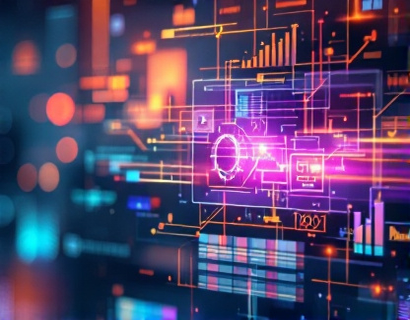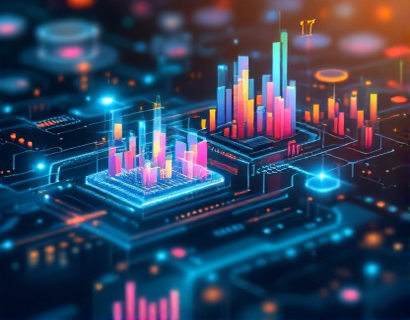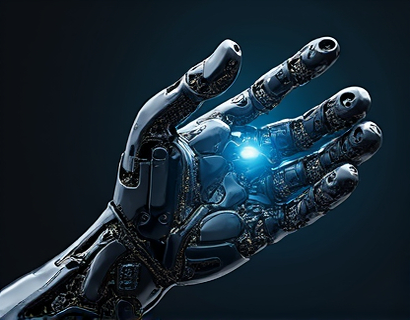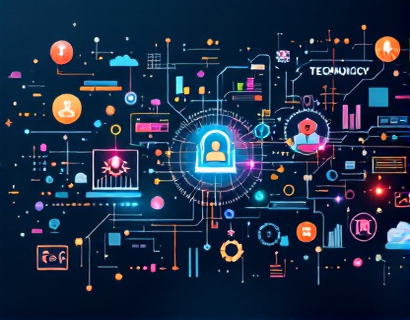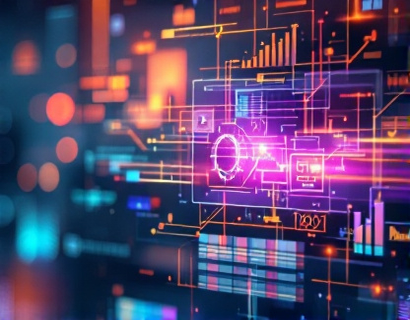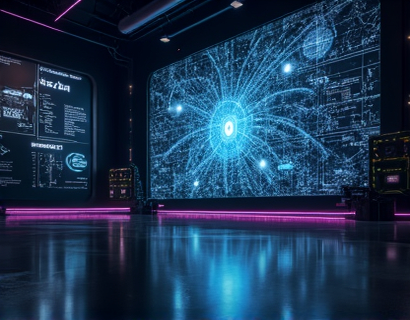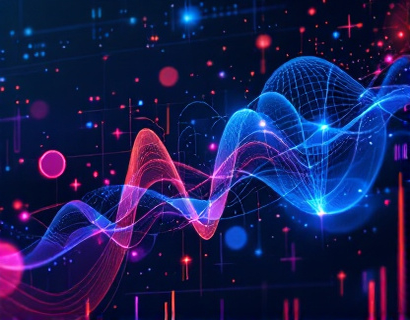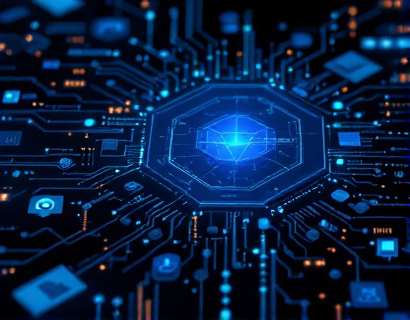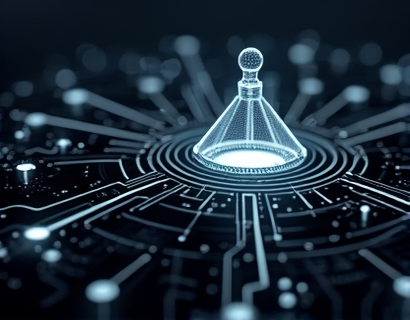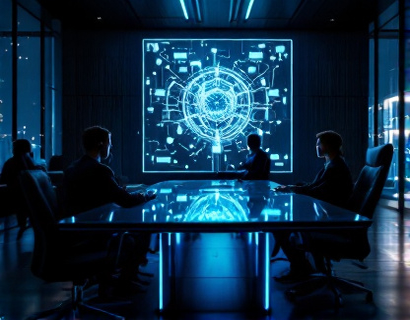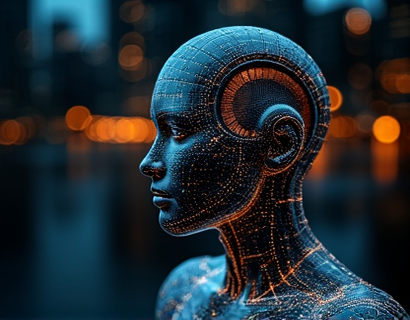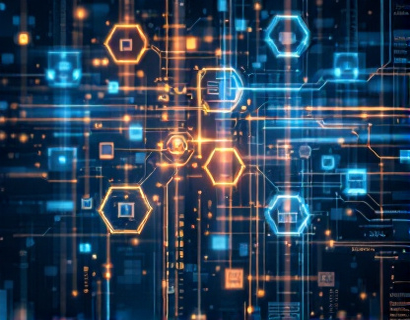Unlocking Next-Gen Digital Transformation: Leveraging Crypto and AI for Innovative Solutions
The digital landscape is undergoing a profound transformation, driven by the convergence of cryptocurrency and artificial intelligence. This fusion is not just a technological curiosity but a powerful force reshaping how we interact with apps and services. As we delve into the latest advancements in tech-driven applications, it becomes clear that the potential for innovative solutions is vast, offering transformative impacts on the future of digital experiences.
At the heart of this transformation is the integration of blockchain technology with AI. Blockchain provides a decentralized, secure, and transparent framework, while AI brings intelligence, adaptability, and efficiency. Together, they create a synergy that can revolutionize various sectors, from finance and healthcare to entertainment and beyond. This article explores how this powerful combination is driving innovative solutions that redefine user interactions and enhance digital services.
Blockchain: The Backbone of Trust and Security
Blockchain technology, known for its role in cryptocurrencies, offers more than just a means of digital currency exchange. Its core features—decentralization, immutability, and transparency—make it an ideal foundation for building trust in digital interactions. In the context of digital transformation, blockchain ensures that data transactions are secure and verifiable, reducing the risk of fraud and enhancing user confidence.
One of the key applications of blockchain in digital transformation is in identity verification. Traditional identity systems are centralized, making them vulnerable to breaches and manipulation. Blockchain-based identity solutions, on the other hand, allow users to control their own identities, providing a secure and private way to authenticate themselves across different platforms. This not only enhances security but also simplifies the user experience by eliminating the need for multiple login credentials.
AI: The Brain Behind the Innovation
Artificial intelligence, with its ability to process and analyze vast amounts of data, is the driving force behind many of the innovative solutions emerging from the crypto and AI fusion. AI algorithms can learn from data, adapt to new inputs, and perform tasks that traditionally required human intervention. When combined with blockchain, AI can operate in a trustless environment, making it even more powerful and versatile.
In the realm of customer service, AI-powered chatbots integrated with blockchain can provide seamless and secure interactions. These chatbots can handle a wide range of tasks, from answering queries to processing transactions, all while maintaining the integrity and privacy of user data. The decentralized nature of blockchain ensures that these interactions are not subject to a single point of failure, enhancing reliability and user trust.
Enhancing User Interactions with Smart Contracts
Smart contracts, self-executing contracts with the terms directly written into code, are another critical component of the crypto and AI synergy. They automate and enforce contractual obligations without the need for intermediaries, reducing costs and increasing efficiency. In digital services, smart contracts can be used to create dynamic and responsive user experiences.
For instance, in the gaming industry, smart contracts can manage in-game assets and transactions, ensuring that players receive rewards and items as promised. AI can enhance this by personalizing the gaming experience based on user behavior and preferences, creating a more engaging and tailored environment. The combination of smart contracts and AI ensures that the digital world is not only secure but also highly interactive and personalized.
Personalization and Recommendation Systems
One of the most significant impacts of AI in digital transformation is the enhancement of personalization and recommendation systems. By analyzing user data, AI can predict preferences and behaviors, allowing for highly targeted and relevant content delivery. When integrated with blockchain, these systems can operate with enhanced privacy and security, as user data is stored and managed in a decentralized manner.
For example, in the entertainment industry, AI-driven recommendation systems can suggest movies, music, or articles based on a user's viewing history and preferences. Blockchain ensures that the data used for these recommendations is tamper-proof and that users have control over their data. This not only improves the user experience but also builds trust, as users know their information is handled securely and ethically.
Supply Chain Transparency and Efficiency
The supply chain industry stands to benefit greatly from the combination of blockchain and AI. Blockchain can provide a transparent and immutable record of every step in the supply chain, from production to delivery. This transparency helps in tracking products, ensuring authenticity, and reducing counterfeiting. AI can further optimize the supply chain by predicting demand, managing inventory, and identifying bottlenecks.
For instance, in the food industry, blockchain can track the origin and journey of food products, ensuring safety and quality. AI can analyze data from various points in the supply chain to predict and prevent issues such as spoilage or contamination. This not only enhances efficiency but also builds consumer trust, as they can verify the authenticity and safety of the products they purchase.
Healthcare Innovations
In the healthcare sector, the fusion of blockchain and AI is revolutionizing patient care and data management. Blockchain can secure patient records, ensuring that they are accessible only to authorized personnel and cannot be altered without detection. AI can analyze these records to provide personalized treatment plans, predict disease outbreaks, and optimize resource allocation.
Telemedicine is another area where this combination shines. AI-powered diagnostic tools integrated with blockchain can securely store and share patient data between healthcare providers, ensuring continuity of care and improving outcomes. The decentralized nature of blockchain ensures that patient data is protected and that users have control over who accesses their information.
Financial Services and DeFi
The financial sector is at the forefront of adopting blockchain and AI technologies. Decentralized Finance (DeFi) platforms leverage blockchain to create financial services that are open, transparent, and accessible to everyone. AI can enhance these platforms by providing advanced analytics, risk assessment, and automated trading solutions.
For example, AI-driven algorithms can analyze market data and predict trends, helping users make informed investment decisions. Smart contracts can automate complex financial transactions, reducing the need for intermediaries and lowering costs. This not only democratizes access to financial services but also increases efficiency and reduces fraud.
Challenges and Considerations
While the potential of combining blockchain and AI is immense, there are several challenges and considerations that need to be addressed. Scalability remains a significant issue for blockchain technology, as many networks struggle to handle high transaction volumes. However, ongoing developments in layer 2 solutions and blockchain optimizations are addressing these concerns.
Another challenge is the regulatory landscape. As these technologies evolve, governments and regulatory bodies are working to create frameworks that balance innovation with consumer protection. Compliance with these regulations is crucial for the widespread adoption of crypto and AI solutions.
Additionally, there is a need for greater education and awareness among users and professionals. Understanding the technical aspects and potential applications of blockchain and AI is essential for harnessing their full potential. This includes training in data privacy, security best practices, and ethical considerations.
Future Outlook
The future of digital transformation through the lens of blockchain and AI is bright and full of possibilities. As technology continues to advance, we can expect even more innovative applications across various industries. The key will be to foster collaboration between technologists, policymakers, and industry leaders to create a supportive ecosystem that encourages innovation while ensuring security and ethical standards.
For tech enthusiasts and professionals, the intersection of cryptocurrency and AI offers a wealth of opportunities for exploration and contribution. By staying informed and engaged, individuals can play a pivotal role in shaping the next generation of digital experiences. The journey ahead is exciting, and the potential for transformative change is limitless.



